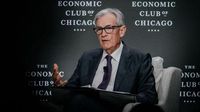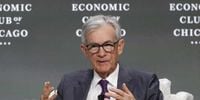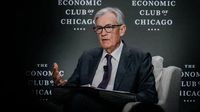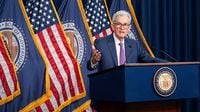President Donald Trump has ramped up his criticism of Federal Reserve Chair Jerome Powell, expressing frustration over the central bank's reluctance to cut interest rates aggressively. In a post on Truth Social on April 17, 2025, Trump declared that Powell's "termination cannot come fast enough!" This latest tirade comes a day after Powell warned that Trump's tariff regime could reignite inflation, an assessment Trump dismissed as a "typical, complete 'mess!'"
The tensions between the White House and the Federal Reserve highlight a significant clash over economic strategy. Powell, who was nominated by Trump in 2017 and reappointed by President Joe Biden in 2022, has a term that runs through May 2026. He has consistently maintained that the independence of the Fed is protected by law, stating, "We're not removable except for cause." This means that the Fed's governors, including Powell, can only be dismissed for misconduct, not policy disagreements.
Historically, the Federal Reserve Act established that its governors serve 14-year terms, a provision designed to insulate them from political pressures. This legal framework was reinforced by the 1935 Supreme Court case, Humphrey's Executor v. United States, which prevented then-President Franklin D. Roosevelt from firing a commissioner of the Federal Trade Commission without cause. Powell indicated that he does not believe any upcoming Supreme Court case challenging this precedent will apply to the Fed, saying, "Generally speaking, Fed independence is very widely understood and supported in Washington — in Congress, where it really matters."
However, Trump's Justice Department has signaled intentions to overturn this precedent, arguing that presidents should have broader authority to dismiss heads of independent agencies. Andrew Ferguson, Trump's new chair of the Federal Trade Commission, has described the precedent as "wrongly decided" and "deeply anti-democratic," suggesting a potential shift in the balance of power.
As the Fed holds its key interest rate steady, Trump has publicly pressured Powell to follow the lead of the European Central Bank, which recently cut its rate from 2.5% to 2.25%. In his Truth Social post, Trump argued, "Oil prices are down, groceries (even eggs!) are down, and the USA is getting RICH ON TARIFFS," insisting that Powell should have lowered rates long ago. Despite Trump's claims, consumer prices for groceries, including eggs, actually rose in March, according to the Bureau of Labor Statistics.
Powell's recent comments reflect a cautious approach. During a speech at the Economic Club of Chicago, he stated, "For the time being, we are well positioned to wait for greater clarity" regarding the impact of policy changes on the economy. He emphasized that the Fed's decisions would be based on what is best for all Americans, free from political influence. "That’s the only thing we’re ever going to do," he added, reiterating that the Fed would not be swayed by external pressures.
The backdrop of Trump's threats against Powell is a legal landscape that could soon change. The Supreme Court is set to hear a case that may redefine the limits of presidential authority over independent agencies. If Trump were to attempt to fire Powell, it would likely lead to a significant legal battle, with the Fed chair potentially remaining in his position during the appeals process.
Market analysts have expressed concerns that any move to dismiss Powell could destabilize the financial markets, which rely on the Fed's independence to make decisions based on economic conditions rather than political whims. Treasury Secretary Scott Bessent has reportedly underscored the risks of such a move within the White House, suggesting that Trump's comments may serve more as a tactic to position Powell as a scapegoat for any future economic downturns.
As the economic situation evolves, Trump's tariffs have increased recession risks, complicating Powell's task of balancing inflation control with employment growth. Powell has highlighted that the tariffs imposed by the Trump administration are "significantly larger than anticipated," warning that they could lead to both higher inflation and slower economic growth—a scenario known as stagflation.
Despite the ongoing tensions, Powell remains steadfast in his role, stating he would not resign if Trump asked him to. The Fed chair's independence is a cornerstone of its ability to implement monetary policy effectively, and any attempt to undermine it could have lasting repercussions for the U.S. economy.
As the situation unfolds, all eyes will be on the Supreme Court and the potential implications of its rulings on the future of the Federal Reserve's governance. For now, Powell's position appears secure, but the political landscape remains volatile, and Trump's frustration may continue to shape the dialogue around the Fed's policies.








